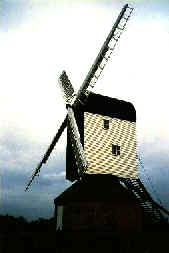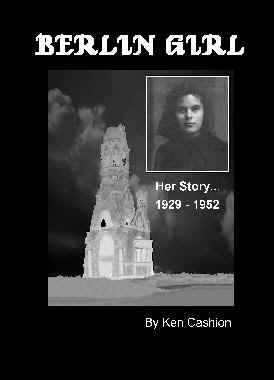
Luddite Publishers®
To purchase the soft cover of Berlin Girl The ebook is now available for popular e-readers. For Kindles: Amazon For other ebook readers: Barnes and Noble |
This nonfiction book was written over a two-year period from the interviews and recordings with Erma Eisler. Her childhood was amid the battles of Berlin and the area just south of Berlin. The family consisted of her father and mother, Arne and Freda, and her younger brother, Richard. They were just an average family caught up in the Nazi rise to power and the maelstrom of the German collapse in the Second World War. Perhaps her family and many in the United States would have shared the same experiences had it not been for the fortune of time and place.
The book is 6" x 9" with perfect binding, and has 20 photographs and five maps.
Excerpt from Chapter VII. In the bombing, Erma’s apartment complex roof was set alight. There had been no high-explosive bombs in her neighborhood that night but just phosphorus bombs. These incendiaries would fall and burn white hot. They could set most anything on fire. The air-raid warden came to the basement and told them that the building was burning. There was no fire department other than local people, and of these, few able men were available. Erma’s father went up to their apartment to try to put the fire out. He came down to tell them the roof was caving in. As they were leaving the building, floors were already falling in. Erma, her family, and all the many others in the complex stood in the street and watched everything burn. She never saw the lady with the little dog again, and Erma's fish and birds died in the flames. One of the bombed-out neighbors said they had a vacation home in the Caputh area 20 miles southwest of Berlin, and that was where they were going. Arne [Erma's father] decided that would be the best thing for them to do, as well. All they owned was a baby carriage for the three-month baby, some of his clothes and diapers, pillows, and a few blankets. The neighbor owned a push cart, so Arne and his family loaded their few things on the cart with those of their neighbors. Then they started pushing the cart toward Caputh. There were few civilian trains in operation this close to Berlin and only a few vehicles were on the roads. There were many other people leaving Berlin and they, too, were shuffling along the road with all they could carry or haul. Erma was in a walking nightmare. She remembers little of the trip. "Just keep walking." She doesn’t recall the time they left nor when they finally arrived in Caputh. These hard times were putting many citizens into situations for which they could not have been prepared. And this applied to Arne and Freda [Erma's mother], as well. Arne, worried with his family’s immediate situation, was concerned about tomorrow; food to be acquired in an unfamiliar place; and exposure to whatever the weather conditions might become. And Freda, looking after a 90-day old son. Erma, 13, filling in with help as she could. Four of many.
|
Windmill Productions copyright 2005
